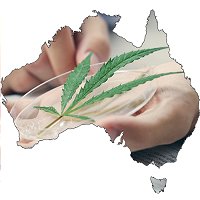Australia’s Therapeutic Goods Administration has announced scheduling changes relating to cannabis that will be implemented in the November 2016 Poisons Standard.
The TGA, part of the Australian Government Department of Health, is the country’s regulatory authority for therapeutic goods.
In April this year, the TGA published an interim decision to create new Schedule 8 entries for some medical cannabis products.
On Tuesday, a public notice on the final decision was published on the TGA website.
The final decision was to amend current Schedule 9 and create new Schedule 8 listings for cannabis and tetrahydrocannabinols (a psychoactive compound in cannabis), plus two appendices.
The amendments will see tetrahydrocannabinols remain as Schedule 9 when not for human therapeutic use, but where applications are for human therapeutic use, they will be Schedule 8 under tightly defined rules.
In Australia, Schedule 9 refers to a prohibited substance and Schedule 8 is a controlled drug.
The goal of the decision is to play a role in providing qualifying patients access to a safe, legal and reliable supply of locally produced cannabis products.
However, access will not be easy. Doctors prescribing Schedule 8 cannabis products, extracts or derivatives will need to be ‘appropriate authorities’; which are usually senior health executives of the states and territories. Prescribed products containing cannabis and tetrahydrocannabinols will require sedation warnings.
The rescheduling does not impact on hemp fibre or the legal status of cannabis and tetrahydrocannabinols in food. Hemp foods remain banned in Australia; but that may change soon.
As for cannabidiol (CBD), another cannabinoid with therapeutic potential, it is included in Schedule 4 of the Poisons Standard where preparations contain 2 per cent or less of other cannabinoids (such as THC). Schedule 4 is designated as “Prescription Only Medicine OR Prescription Animal Remedy.”
In the Poisons Schedule, cannabis refers to all plants in the genus and includes seeds, extracts, resins and any part of the plant.
The re-scheduling is by no means an ideal situation, but it signifies a major change in position and is another step along the path to making medical cannabis more widely accessible in Australia.
An FAQ on the scheduling changes can be viewed here.


